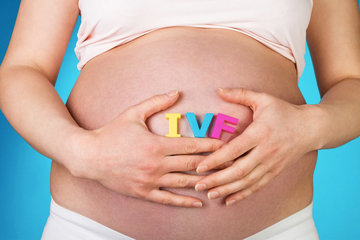
Eating more fruit and vegetables lowers people’s chances of being clinically depressed, according to new research done at University of Warwick’s Warwick Business School. Dr. Redzo Mujcic and Professor Andrew Oswald, who has helped to create the new field known as the economics of happiness, are behind the findings in the paper Does eating fruit and vegetables also reduce the longitudinal risk of depression and anxiety? A commentary on 'Lettuce be happy, which shows how chowing down fruit and vegetables can boost our mental health. The men who work at the institute situated in Coventry, England. even hit upon the fact eating four extra portions of fruit and vegetables can help you offset half the negative psychological impact of divorce and a quarter of the psychological damage of unemployment.

Professor Andrew Oswald
Other studies have used people’s subjective responses to surveys to discover a link between eating fruit and vegetables with improved wellbeing. Yet this is the only one of a few studies that has found objective evidence of the association between fruit and vegetables and psychological health.
“This is an interesting finding and makes the case for an empirical link between fruit and vegetables and improved mental wellbeing more powerful," Mujcic, an Assistant Professor of Behavioural Science at the Warwick Business School, said. “The effect is not small as well. If people eat around seven or eight portions of fruit and vegetables a day the boost in mental wellbeing is as strong as divorce pushing people the other way, to a depressed state.
"We found being made unemployed had a very bad and significant effect on people’s mental health, greatly increasing the risk of depression and anxiety. But eating seven or eight portions of fruit and vegetables a day can reduce that by half,” he added.

Mujcic, whose research has been published in the Economic Journal, the American Journal of Public Health and featured in The New York Times, Forbes and The Wall Street Journal, also said the effect is a lot quicker than the physical progress you see from a healthy diet. He explained mental improvements happen within just 24 months, whereas physical ones don’t occur until you are in your 60s.
“This is an important preliminary finding as governments and healthcare policymakers are currently more interested in the determinants of mental ill-health, such as clinical depression and high levels of anxiety, rather than people’s subjective assessment of their wellbeing as used in previous research,” the Assistant Professor, who joined the school in February 2019, said.
Mujcic and Oswald used data from the Household, Income and Labour Dynamics in Australia (HILDA) survey, which has been carried out annually since 2001. As well as asking respondents if they have been diagnosed with depression or anxiety, they questioned them about their diets and lifestyles. The study then used a representative sample of 7,108 respondents who answered they had not been diagnosed with depression or anxiety in 2007 to see if their diets could predict their chances of depression two years later.
The results revealed an inverse relationship between fruit and vegetables and future depression or anxiety, meaning the more fruit and vegetables people ate the less likely they were to be diagnosed with a mental illness in later periods.
“If people increase their daily intake of fruit and vegetables from zero to eight, they are 3.2 percentage points less likely to suffer depression or anxiety in the next two years,” Mujcic said. He added that while that might not sound much in absolute terms, the effect is comparable to parts of major life events, like being made unemployed or divorced.
“We tested for reverse-causality – ie whether it might be that depression or anxiety leads to people eating less fruit and vegetables – but we found no strong statistical evidence of this,” he said.
Mujcic explained the next natural step is to do a randomised controlled trial to explore the causal relationship between diet and psychological wellbeing in society.


























